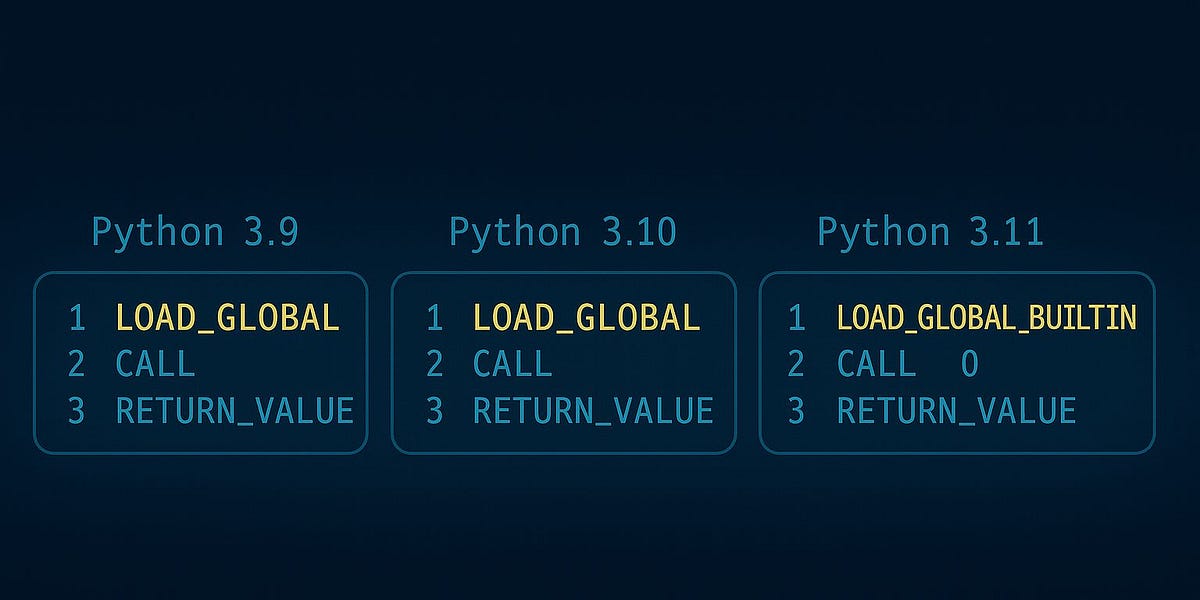Why This Python Performance Trick Doesn’t Matter Anymore
Why This Python Performance Trick Doesn’t Matter Anymore

blog.codingconfessions.com
Why This Old Python Performance Trick Doesn’t Matter Anymore

Why This Python Performance Trick Doesn’t Matter Anymore

Why This Old Python Performance Trick Doesn’t Matter Anymore

TLDR: 3.11 is twice as fast as 3.10 at doing global name lookups, so an old speedup hack of aliasing a global function locally isn't needed.
For example, when calling len() in a loop, going l=len, and calling l() in the loop was faster in 3.10. In 3.11, moreso in 3.13, it's almost a wash.
However, the author says this:
But when I look at the numbers, I would say 3.13 is pretty close to making it an unnecessary optimization in general. A little subjective on how you interpret the numbers.
Great info, but this was like trying to use a recipe and reading the author's life story to get there.
Thanks for the summary!
Yeah, in Python each . is a dictionary lookup. The cost of having a dynamic language where the compiler can do pretty much no optimizations (and yes, Python does have a compiler).
In static languages these lookups can be collapsed to a single pointer address by the compiler.
I'm surprised about the module lookup thing, since I assumed it was just syntax sugar to do
from ... import .... We do thefromsyntax almost everywhere, but I've been replacing huge import blocks with a module import (e.g. constants) just to clean up the imports a bit and git conflicts.Looks like I'll need to keep this in mind until we upgrade to 3.13.